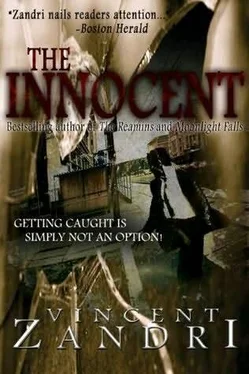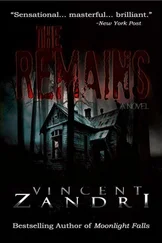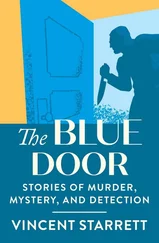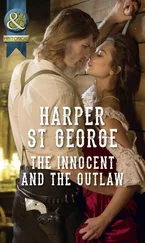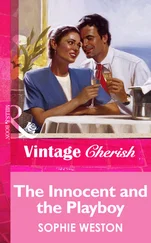Henry beamed with an ear-to-ear grin. “Yeah, yeah,” he said, “I know it.”
“That’s me,” I said.
Henry took his hands away from his face, set them in his lap.
“I’ll be damned,” he said. “Never seen a film star up close before.”
“Now,” I said, “how about that hotel?”
“The only place around is the Stevens House Bed-and-Breakfast over on the corner of Livingstone and North Water Streets.”
“Expensive?” I said, making that same tight, stern face. “I don’t want to pay a lot for that hotel.” Maybe I was pushing it too far.
“Cheap,” Henry said, “for a man of your means.” He sat back once more in that swivel chair, ignorant of the credit slips that continued to float down to the grease-and-gasoline-smeared floor. “Jack Nicholson and Meryl Streep filmed some of Ironweed over there on the second floor.”
“Jeez,” I said. “Jack and Meryl.”
“You know them?”
I crossed the finger on my right hand.
“Jack and me are like this,” I lied.
“No kidding,” Hank said.
“Who should I see at the Stevens House?”
“Just tell them Henry Snow sent you.”
I glanced at my picture and my headline.
“What did you say your name was?” said Henry, his eyes squinty and curious.
I hesitated for a second or two-maybe longer than I should have.
Big Daddy swung and missed again. Three strikes and a loud buzz of disappointment from the New York fans. I remembered seeing Mickey Mantle make a rare strikeout when I was a boy, having made it to the ball game with my father on the bus trip the Italian American Benevolence Society of Albany sponsored once a year.
I took a quick look at the bowling trophies and plaques displayed on the same shelf as the radio broadcasting the game. Some of the plaques had been service awards issued by the Sun Oil Company. The most recent award had the year 1972 embossed in fake silver plate attached to a fake marble base.
Nineteen seventy-two, the year Wash Pelton, Mike Norman, and I might never have seen had we not survived Attica.
“Sonny Rivers,” I said. “My stage name.”
“Can’t say I know the name,” Henry Snow said. “But it sounds like it could be famous.”
I put my hand on the door, took one last look at the newspaper headline and photo. But then Henry turned and looked at the headline, too.
Time for Sonny Rivers to make his exit, stage right.
“Hey thanks,” I said, turning the knob on the old glass-and-wood door.
“Don’t mention it, Sonny,” Henry said.
And then I left.
But as I climbed back into the 4-Runner, I could see that my newest buddy, Henry Snow, had already picked up the phone. I turned over the four-by-four and glared at him through the plate-glass window that took up a whole quarter of the station’s facade. For a second or two, our eyes locked. But Henry kept right on talking into the receiver as if convinced that he could see me, but that I had no way of seeing him. Glass tends to fool some people that way, as if transparency works only one way. Maybe it was just a hunch, or maybe just a bad feeling. Maybe my nerves were getting the best of me. But as I turned out onto Main Street, I felt certain that gullible Henry Snow hadn’t been snowed at all. He was calling the cops.
THE STEVENS HOUSE WAS an old townhouse that took up an entire street corner. It had a high Victorian-style roof with gables atop all four corners. The gables were visible from where I parked the Toyota on the opposite side of North Water Street. With its tall shutters and dark, heavy oak doors, the place looked more like a haunted house than a bed-and-breakfast.
The west bank of the Hudson River cut across the flat landscape directly to my right. A jetty made up of black boulders reached out to the center of the river. At the farthest point of the jetty was a lighthouse, the base and tower of which had also been constructed of heavy stone blocks. The lighthouse beacon cast a bright yellow light against the cloud cover.
I turned back to the Stevens House and decided to wait and watch out for a dark, wiry-looking man who fit Eduard Vasquez’s description. A man with his ID number tattooed to his knuckles and a mouth with a hole in it where a molar had been extracted. I waited for a woman with brown hair and a small, heart-shaped tattoo on her neck. I would have waited and watched until dark, had I not heard the unmistakable wail of police sirens.
NOT EVERYTHING ABOUT THE Attica riot was fear and loathing and silent desperation. There were moments of real heroics. I don’t mean Arnold Schwarzenegger-style Hollywood heroics where I singlehandedly take out each and every one of the rebel inmates with my bare feet and knuckles. What I’m trying to get across is this: Just staying alive constituted honest-to-God heroics.
For example, I still see myself dragging Mike Norman by his feet back to the wall of D-Block, keeping him between me and the stone foundation. Wash Pelton follows, sets himself right beside me. Two rebel inmates-one black, one white-watch over us. Other inmates stare at us, the guards who have become the prisoners. From here I can see the sudden reflection of the sun in the scopes of the sharpshooters during the occasional breaks in the clouds.
The rebel inmates lift their shivs and spears and assume a sort of attack formation. When they begin to close in, I can see the whites of their eyes. I can see their jagged, broken blood vessels. I can almost smell their sour breath.
It’s then that something strange happens to me. All fear leaves my body. It just seems to drain out through my bare feet like water from a sieve. It’s as if, along with the realization that I’m already dead, a great burden has been lifted from my shoulders.
I KEPT THE TOYOTA at an even thirty-five per until safely outside of town. Then I shot up Route 9 to Highway 87, fast lane. When I came to the first available rest stop about fifteen minutes later, I pulled around back of the wood-and-stone building and parked between two green dumpsters.
The rest stop resembled a ski lodge more than a tourist trap for wayward and exhausted motorists. Bolted to the exposed fieldstone interior, a colorful neon sign advertised a Burger King and a Santo Pizza Parlor. Another smaller, much less conspicuous neon sign advertised an ATM like an afterthought.
Since I hadn’t eaten all day, I chose the lesser of the two evils and ordered two giant slices with sausage from the pizza joint. I covered the slices with Parmesan and ate them while standing at a green Formica counter that wrapped around a seating area with identical pea-green tables and chairs. The tables were filled to capacity with families mostly, eating now, tasting later. Middle-class travelers, I imagined, en route to early vacations upstate at a time of year when the cost of lodging was still cheap. And there were others. Men and women eating alone. One slice of pizza cost four dollars, which meant I’d blown a ten-spot on two lukewarm slices of sausage-covered. My mother would have called the cardboard-thin pizza a disgrace. But then, when it came to my mother, any pizza other than her own was less than edible.
I glanced at a family of four seated in the far corner. Mother and father in their mid-to-late thirties with two young children-a boy and a girl. The cherubic faces of the children barely cleared the table as their little hands awkwardly maneuvered the oversized slices of pizza to their undersized mouths. Throughout the meal, the mother and father never once looked at each other, never once spoke a single word. It made me sad to look at them. I also knew that if I thought about it hard and long enough, I would begin to feel a certain desperation for them.
Читать дальше
